Graham Reid | | 6 min read
Hermione Johnson: All the Acids of the Future

Sometimes in an interview it is useful to ask the stupid questions, the ones the subject has long since ever had to answer and so is often caught off-guard, has to think, has to define an idea they have taken as a given.
So when, in what he knew to be the final days of his life, I spoke with Murray McNabb I asked him a simple question: “Why jazz?”
He laughed and without hesitation sang his reply, “Freeedom”.
Freedom however is a word loaded with meanings – just ask an NRA member in South Carolina and a protester in Istanbul what the word means to them – but has always been part of the broad and inclusive church that is jazz. It can mean freedom to explore and for the artists to express themselves, but can also have deeper resonances.
When Thelonious Monk said “jazz and freedom go hand in hand” he had a long subtext of racial oppression to draw upon.
And so when Free Jazz as a movement rolled around and gained momentum in the mid Sixties there was a powerful political imperative for black American artists. The music became a vehicle for the anguish, suffering and rage built up over centuries, was freighted with the political consciousness of its time . . . and as a result largely alienated the broad, white audience which had been enthralled by this music for decades.
Today when free jazz is played by musicians away from that cultural context it means a very different thing. There is little relationship between the squalls and cries of the young Pharoah Sanders' saxophone or Albert Ayler and that of a white university-educated player.
But free jazz – and again this is implicit in the sub-clauses of its contract – is a powerful vehicle for any artist who takes it seriously.
Free jazz has had a checkered history in New Zealand (and has sometimes been the disguise for musicians of little talent) but Wellington has been its epicentre for a very long time, although we might perhaps more correctly use a less amorphous term like "improvised music" which is less loaded with cultural and political associations than "free jazz".
Today the iiii label continues to courageously release improvised music (often recorded live at the small venue Happy) and in recent years has organised concerts, tours and released a batch of albums which are diverse, interesting, sometimes challenging and often embracing that ethic of “free jazz”.
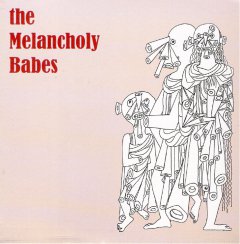 Some of the label's mainstays are
saxophonist Jeff Henderson and drummer Anthony Donaldson (both
formerly in the Dodecahedrons whose Colourful Language album is worth
checking out) and – with bassist Tom Callwood (of the Phoenix
Foundation) – were recorded live at Happy in 2010 for what has
become the album under the name The Melancholy Babes.
Some of the label's mainstays are
saxophonist Jeff Henderson and drummer Anthony Donaldson (both
formerly in the Dodecahedrons whose Colourful Language album is worth
checking out) and – with bassist Tom Callwood (of the Phoenix
Foundation) – were recorded live at Happy in 2010 for what has
become the album under the name The Melancholy Babes.
This is often muscular and exciting music which is delightfully unpredictable, is aware of the long tradition (some might hear a little of Sanders, the Art Ensemble of Chicago and Coltrane here) and also humorous in places: Hades Hens Night is bent swing for the drunk gals on a night out before the big day.
But they really dig deep on the centrepiece Mistake in the Grass where they achieve a depth of emotional expression and intuitiveness which briefly seems to refer to late Coltrane. But it finds a language of its own as Donaldson and Callwood lay down shifting tectonic plates of rhythm while Henderson dives headlong into the energetic music which fires off at tangents but remains centred.
 Henderson was also on the 2009 studio
session in Auckland with Japanese drummer Shoji Hano, guitarist Paul
Buckton and electric bassist Paul Winstanley for the album which has
appeared as Eyeballs.
Henderson was also on the 2009 studio
session in Auckland with Japanese drummer Shoji Hano, guitarist Paul
Buckton and electric bassist Paul Winstanley for the album which has
appeared as Eyeballs.
Again there an exciting, visceral energy in places (notably the title track where you get a sense that wrestling cover shot is emblematic), but this is just as interesting is when they pare right back to subtle, almost pointillistic playing (the opening passages of Heavy Water where sonic possibilities are explored).
The sound of prepared guitar and drums playing off each in excitable dialogues -- and sometimes parallel monologues with bass carrying on another stream of thought -- is a real highpoint here. Ear Island is 14 minutes which keeps you gripped the whole way.
Although perhaps a little more work than Melancholy Babes (because percussion is so the fore), this is a real milestone album in the genre.
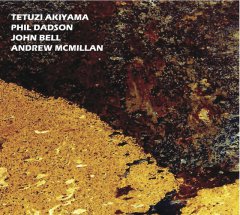 Also recorded in Auckland's Blackbridge Studio but a year later, is Novaya Zemlya by guitarist Tetuzi Akiyama, percussion/piano player Phil Dadson (of From Scratch) and vibes/percussionist John Bell, with Andrew McMillan doing live sonic manipulations on one piece.
Also recorded in Auckland's Blackbridge Studio but a year later, is Novaya Zemlya by guitarist Tetuzi Akiyama, percussion/piano player Phil Dadson (of From Scratch) and vibes/percussionist John Bell, with Andrew McMillan doing live sonic manipulations on one piece.
If we are going to consider the divide between free jazz and improvised music, this falls firmly into the latter . . . and not because there's no saxophone to identify it as "jazz".
This album is closer to the realms of experimental art music and serves to remind that New Zealand has a solid history in that area, dating from Douglas Lilburn's sonic experiements with electronics in the late Sixties, but more specifically the generations which followed and included the likes of John Cousins and, of course, From Scratch.
My guess is music of this kind is largely dismissed (if it's heard at all) by most right-thinking civilians but for my part the problem isn't that it refers to nothing outside of itself but that much of it is best appreciated in the moment. Recordings -- while utterly valid -- hardly convey the multi-sensory effect and frisson of the unexpected which happens when the music is being made.
This one however hurdles that with two pivotal pieces -- the brief After Half Life where Akiyama's detuned guitar invites intimacy as it constantly surprises (and alludes to traditonal Japanese koto and Korean gayageum tunings) and is in front of, and then with, percussive sounds. Then there is No Turning Back which follows where the ideas seem to be extended into a disconcerting piece of disembodied sounds (for which we perhaps credit McMillan).
By the time the following piece arrives -- the 12 minute Mirage -- you have been prepared for the experience, however it opens with somewhat piercing frequencies and it will be a hardy soul prepared to live with an effect resembling tinnitus who would persist. Hard to come back from that but the shorter pieces which follow (Akiyama again in introspective mode on Coloured Purple) are rather more inviting.
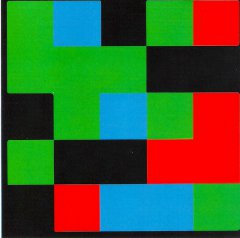 A difficult one but rewarding . . . . if the FF remote is in reach.
A difficult one but rewarding . . . . if the FF remote is in reach.
Those who know Piet Mondrian's painting Broadway Boogie-Woogie (in the early Forties) would recognise it offered a visual parallel to the buzz of activity that was New York streetlife and jazz at the time. And they might look at the more abrupt design and colours of solo pianist Hermione Johnson's Colour Code cover (right) and speculate . . .
They wouldn't be far wrong. Here is Auckland resident Johnson recorded in Berlin on a series of pieces (on and in the piano) which explore the full dynamics of the instrument from crashing atonality to delicate raindrop randomness.
She also brings a darkly romantic quality on All the Acids of the Future, and Ola Ola right at the end is full of abrupt stops and swerves. Aside from the six minute opener, these are mostly short pieces -- the album clocks in at just 22 minutes -- but she proves the less-is-more principle in improvisations which are intensely focused. The belligerent 121 Cm is a real lapel-grabber and crams an enormous amount of energy and musical information into its 1.44 seconds.
Colour Code is an excellent entry in the iiii release schedule.
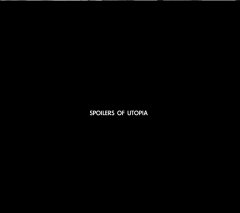 Oddly enough the one which disappoints the most among the recent crop of iiii releases is that which seems to have the most promise, a supergroup of sorts on Spoliers of Utopia.
Oddly enough the one which disappoints the most among the recent crop of iiii releases is that which seems to have the most promise, a supergroup of sorts on Spoliers of Utopia.
Recorded live in Auckland in early 2013, this large ensemble includes Kingsley Melhuish, John Bell, Neil Watson, Don McGlashan and others (including three Rarotongan drummers on a turbulent track which sounds like a Hawaii 5-0 soundtrack off its medication).
This large ensemble presents 11 big band pieces, but many adopt a default position of some familiar tropes (mariachi, marching band, traditional ballads) and it is only Bell's Delegation March which deconstructs itself, almost against its will, that this reaches peaks of excitement and exploration.
There are however other pieces which strive for a different effect very successfully (the slow, considered The Great Amnesia by Bell with Watson's guitar weaving throughout) and it would be a hard heart which would deny the emotional pull of their stately interpretation of the old Sally Army hymn O Boundless Salvation.
Ironically, in the context of this overview of iiii releases, one of the most beguiling pieces is producer Andrew McMillan's very straight-ahead Nine Coins of the Divided Church, an elegantly melancholy march-cum-hymn where the layers of horns ebb and flow, and return to the enchantingly simple melodic line.
And so a column which began with championing free jazz and spontaneously improvised music finds comfort in this beautiful, vaguely familiar tune.
Ironies abound.
For more information on the iiii label and its releases/concerts/etc visit their website here.


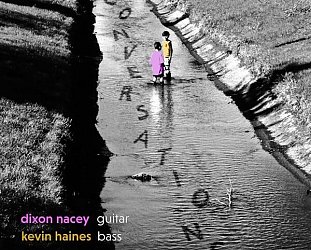
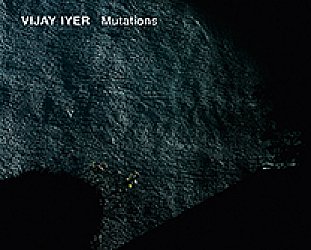
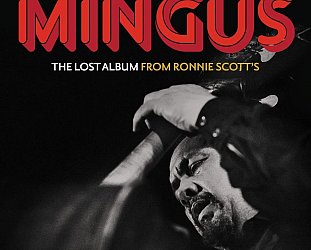


post a comment